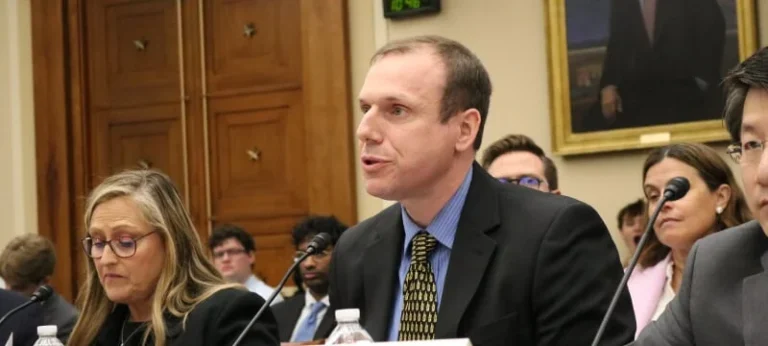Bills Would Mandate Prison for Fentanyl Dealers: Senate Passes Major Legislation
In a bipartisan show of courage, the Senate voted to punish sellers of fentanyl more severely, imposing a second round of sanctions on the lawless drug smugglers. The bill, the HALT Fentanyl Act, passed with an almost unanimous Senate vote of 84-16 on Friday. Democrats cast all of the dissents, but bipartisan overall support signals that both sides recognize the havoc fentanyl is still causing in the country.
The bill is now headed to the House, where it already has received wide bipartisan support in the same bill. Once passed, it will be a policy sea change on drug enforcement, the start of an era of mandatory prison sentences for dealers of fentanyl.
What the HALT Fentanyl Act Seeks to Achieve
The bill’s heart is a simple but effective amendment: it would classify all the fentanyl compounds permanently as Schedule 1 drugs — the reserve class for most risky and most addicting drugs, and drugs like heroin and LSD. They’ve been temporarily Schedule 1 since 2018, and that expired soon. The new legislation puts these fentanyl knockoff forms in the most hazardous category forever, making it easier to prosecute and punish with greater severity.
This measure would lead to further criminal convictions for fentanyl and other related drug distribution, as estimated by the Congressional Budget Office. The bill further hopes to promote further research into fentanyl and how it affects society, although its opponents argue that it will end up stifling research due to added controls.
Why the Bipartisan Rush?
The opioid crisis and fentanyl’s part in it has been a clarion call in US politics. Fentanyl is now contributing tens of thousands of overdose-related fatalities annually across the United States. President Donald Trump hammered the issue during the 2024 elections, calling for tough actions to prevent the entry of fentanyl into the US from countries like Mexico, China, and Canada.
Now that Republicans control the Senate, Majority Leader John Thune prioritized passage of the HALT Fentanyl Act. “This bill gives law enforcement an important tool to go after the criminals that are flooding our country with this poison and selling it on our streets,” Thune emphasized this week.
Defenders of the bill argue that it is a bipartisan reaction to a problem that crosses party lines. Senator Bill Cassidy, Louisiana’s Republican senator and co-author of the bill, described the situation accurately: “This is bipartisan because, quite frankly, fentanyl is a bipartisan issue.”
Police groups have also approved the bill, writing that permanent classification of fentanyl-related substances is long overdue.
What the Critics Are Saying
While many lawmakers have leapt at the bill, some progressive Democrats are deeply alarmed. They argue that the HALT Fentanyl Act is déjà vu, or a rerun of the old failures, in the form of the “war on drugs” initiatives of the 1980s and 1990s that led to mass incarceration especially of Black and Hispanic Americans without addressing the root causes of addiction.
Massachusetts Senator Ed Markey was one of the more vocal critics. He warned that the bill was less about political posturing and more about addressing the fentanyl crisis. In a statement, Markey said the bill “will do little to actually solve the fentanyl crisis but will make it harder to research addiction and overdose reversal medicines.” He went on to say that it could also hurt communities further by prioritizing incarceration over recovery and treatment.
Numbers would appear to back up some of those concerns. In 2023, the fentanyl trafficking crime had just more than seven years in prison on average as the offense, the U.S. Sentencing Commission reported. Almost 60% of the defendants who were convicted were Black, 23% Hispanic, and just 16% were white creating concerns about racial disparities in the system that potentially could be heightened by the new law.
A Political Balancing Act
The debate around the HALT Fentanyl Act reflects the narrow line that politicians are attempting to walk: responding to a public health crisis without reopening the draconian and discriminatory policies of yesteryear.
While Congress is assured to move to sever the supply of fentanyl, there are doubts regarding how. Critics warn that raising jail time would sidetrack resources from successful strategies like treating addiction, education, and cutting off the international supply of fentanyl.
There’s also a threat that the bill, by locking up fentanyl analogues in Schedule 1, could be a hindrance to legitimate scientific study on cutting back treatment of addiction and overdose prevention.
With the Senate vote, the ball is now in the House’s court. There’s already passed a similar version of the HALT Fentanyl Act there with strong support, so chances are the bill will become law soon.
But as the country gears up for another hard-fought election cycle, it’s clear that how America responds to the fentanyl crisis will be a major political and moral issue. So far, though, both parties have been able to find common ground in cracking down hard on the sellers of one of the deadliest drugs the nation has ever known.







